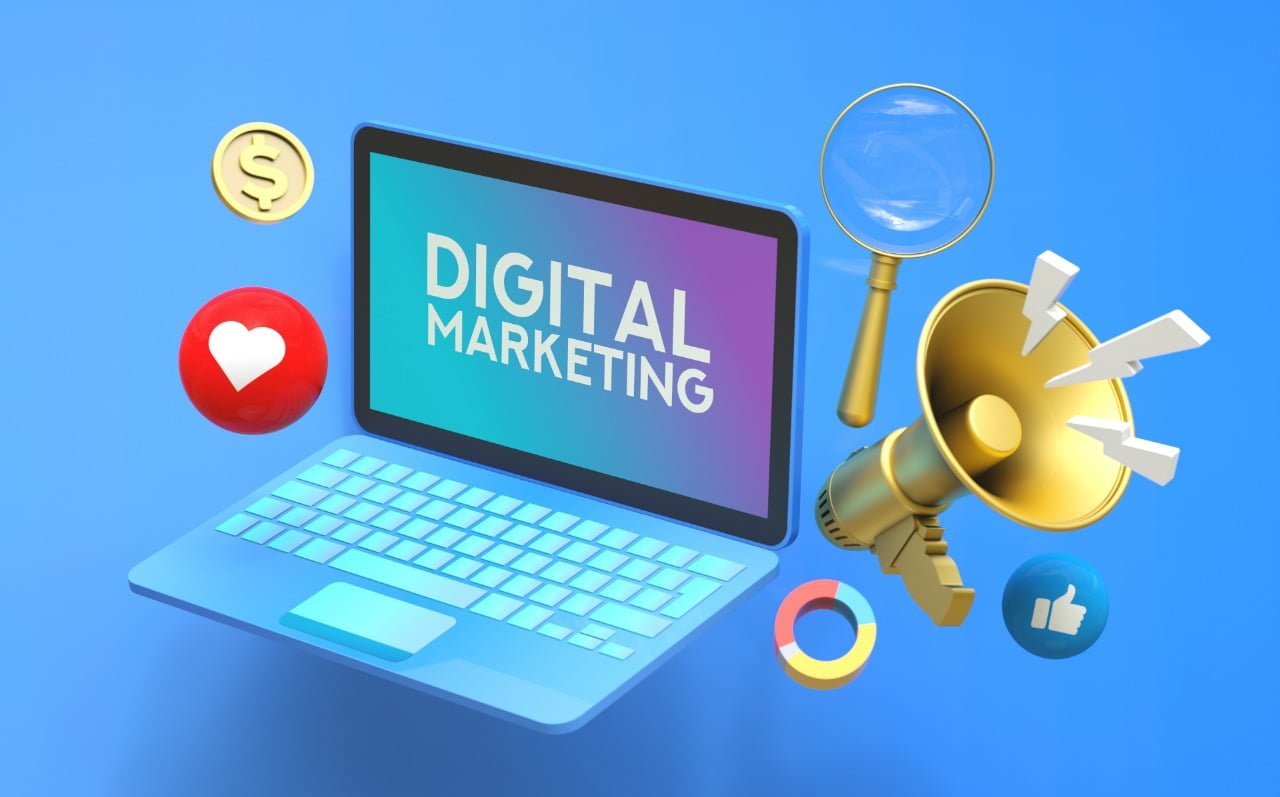The Role Of Emotional Marketing In Digital Marketing
Understanding emotional marketing is crucial in digital marketing as it has the power to influence consumers’ decision-making processes. Emotional marketing is a strategy that focuses on evoking emotions such as joy, excitement, fear or nostalgia in order to create a connection between the brand and the consumer. It aims to tap into the emotional needs of consumers by creating an emotional bond with them.
Emotional marketing works well in digital marketing because it enables brands to connect with their audience on a personal level through various channels such as social media, email marketing or video advertising.
By using storytelling techniques and visual content, brands can evoke emotions that resonate with their target audience. One of the main reasons why emotional marketing matters in digital marketing is that emotions play a critical role in consumer behavior.
Studies have shown that consumers are more likely to remember and act upon an advertisement if it evokes an emotion. Additionally, emotions also influence our decision-making processes when it comes to purchasing products or services.
Understanding emotional marketing is vital for digital marketers who aim to create meaningful connections with their target audience. Creating emotional connections with customers is a crucial aspect of digital marketing.
Brands use emotional marketing to build relationships with their customers online by creating content that resonates emotionally with their target audience.
Emotional marketing can evoke feelings of happiness, sadness, nostalgia, or excitement in consumers, which helps to create a strong bond between the brand and its customers.
One example of successful emotional marketing is Coca-Cola’s “Share a Coke” campaign. The campaign encouraged consumers to buy bottles of Coke with personalized names on them and share them with friends and family.
This campaign was hugely successful because it tapped into people’s desire for connection and personalization. Another way brands create emotional connections with customers is by telling stories that resonate with their audience.
For instance, Nike’s “Dream Crazy” ad featuring Colin Kaepernick was an excellent example of this strategy in action. The ad told a story about overcoming adversity and standing up for what you believe in, which resonated deeply with Nike’s target audience.
To create content that resonates emotionally with audiences, brands need to understand their target audience’s values, beliefs, and emotions. The science of emotional marketing is a crucial aspect of digital marketing that cannot be ignored.
It focuses on understanding the psychology behind consumer behavior and decision-making, especially how emotions can influence them.
Research studies and surveys have shown that emotional marketing can be highly effective in digital campaigns, leading to increased brand loyalty, sales, and customer engagement.
One of the key ways emotions influence consumer behavior is through the creation of memories.
Emotional experiences are more likely to be remembered than rational ones, making it essential for brands to create an emotional connection with their target audience.
This can involve using storytelling techniques to evoke specific emotions or using visual imagery that elicits an emotional response.
Another important aspect of emotional marketing is understanding the different emotions that consumers experience throughout their customer journey.
Emotional marketing plays a crucial role in digital marketing. It involves creating a connection between the brand and the customer on an emotional level. By tapping into the customer’s emotions, brands can build trust, loyalty, and long-term relationships with their customers.
Here are some ways emotional marketing can be incorporated into digital marketing:
Storytelling: By sharing stories about how your brand has positively impacted your customers, you can create an emotional connection with your audience. People are more likely to remember stories than they are facts and figures.
Personalization: Addressing customers by their names and tailoring messages to their interests and preferences shows that you understand them and care about their needs. This can create a sense of belonging and loyalty to the brand.
Social Media: Social media platforms are a great way to create an emotional connection with customers. By posting engaging content that triggers positive emotions, you can create a community around your brand.
Video Marketing: Video marketing can be a powerful tool for creating emotional connections with customers. Videos that tell a story, evoke strong emotions, or showcase the impact of your brand can be particularly effective.
Overall, emotional marketing can help brands stand out in a crowded digital marketplace by creating a connection with their customers that goes beyond the product or service being offered. By tapping into emotions, brands can build trust and loyalty, leading to long-term success.
Emotional Marketing In Digital Marketing
By tapping into a customer’s emotions, brands can create a strong connection with them and increase the likelihood of them purchasing their products or services.
Emotions such as joy, fear, anger, and sadness are all powerful drivers of behavior and can be used to create compelling advertising campaigns. In digital marketing, understanding emotional marketing is particularly important because online interactions lack the personal touch that physical interactions provide.
Brands need to find ways to connect with customers on an emotional level despite this barrier. Through targeted messaging and storytelling, brands can create an emotional connection with their audience that goes beyond just promoting their products or services.
Implementing emotional marketing strategies is a crucial aspect of digital marketing. Marketers can use various tactics to evoke emotions in their target audience, such as storytelling, personalization, and social proof.
Storytelling is an effective way to create an emotional connection with the audience by telling a story that resonates with their experiences or values. Personalization involves tailoring the message or content to suit the individual preferences of the customer.
This makes them feel special and valued, leading to a positive emotional response. Social proof involves using testimonials or reviews from satisfied customers, which can influence potential buyers’ decision-making process.
By implementing these strategies, marketers can tap into the power of emotions and create a more meaningful connection with their target audience. Emotional marketing creates an opportunity for brands to stand out from competitors by forming deep connections with customers that go beyond just product features and benefits.
This approach not only increases brand loyalty but also drives sales by creating memorable experiences that customers are more likely to share with others.
Overall, emotional marketing strategies are a must-have for any business looking to succeed in today’s digital landscape. Measuring the effectiveness of emotional marketing is a crucial aspect of digital marketing.
Brands that invest in emotional marketing strategies need to track and measure the impact of their efforts using various metrics. Engagement rates, conversion rates, and customer loyalty are some of the metrics that can be used to measure the effectiveness of emotional marketing.
Engagement rates indicate how much audience engagement a brand has generated through its emotional marketing campaigns. Conversion rates, on the other hand, show how many people have taken action after engaging with a brand’s emotional content.
Customer loyalty is another important metric that brands should consider when measuring the success of their emotional marketing campaigns. By tracking these metrics, brands can determine whether their emotional marketing strategies are effective or not.
Importance Of Emotional Marketing In Digital Marketing
For example, a video advertisement that shows heartwarming moments between family members can create a sense of nostalgia and happiness in viewers. This emotional connection can then be used to promote the brand or product being advertised.
The importance of emotional marketing lies in its ability to differentiate a brand from its competitors by creating an emotional
bond with consumers.
This bond creates long-term customer relationships, as customers are more likely to remain loyal to brands that they have an emotional connection with.
In conclusion, understanding emotional marketing is vital for digital marketers looking to increase customer engagement and
loyalty. By tapping into consumers’ emotions through compelling content, brands can create memorable experiences that
resonate with their target audience and drive sales.
The benefits of emotional marketing in digital marketing are numerous.
Emotional marketing allows brands to create a deeper connection with their target audience by tapping into their emotions and Values.
This approach can build brand loyalty as customers feel a sense of belonging and attachment to the brand. By creating an
emotional bond with customers, brands can increase engagement rates and drive conversions.
Furthermore, emotional marketing can enhance customer experiences by providing personalized content that resonates with them on a deeper level.
This approach enables brands to communicate in a way that makes customers feel understood and valued.
In addition, emotional marketing campaigns often have a longer-lasting impact than traditional advertising methods. They
leave a lasting impression on consumers, which increases the likelihood of them sharing the content with others or revisiting
the brand in the future.
Overall, incorporating emotional marketing into digital marketing campaigns is essential for brands looking to establish long-term relationships with their customers.
By leveraging emotions, brands can create meaningful connections that drive engagement, loyalty, and sales.In today’s digital age, emotional marketing has become more important than ever before.
Emotions have the power to influence consumer decisions and behavior, making it crucial for brands to create emotionally
resonant content that connects with their target audience.
There are several key strategies for effective emotional marketing
that brands can use to create content that resonates with their audience. One of the most effective strategies is storytelling.
By sharing authentic and engaging stories, brands can connect with their customers on a deeper level and build trust and loyalty.
Personalization is another powerful strategy for emotional marketing. By tailoring messages and content to individual customers based on their preferences and behaviors, brands can create a more personalized experience that resonates with their audience.
Social proof is also an essential strategy for effective emotional marketing. By showcasing positive reviews, testimonials, or endorsements from happy customers or influencers, brands can build social proof which creates trust among potential customers.
Differentiation: Emotional marketing can help a brand differentiate itself from its competitors. When customers have an emotional connection with a brand, they are more likely to remain loyal to that brand, even if there are other similar products or services available.
Increased Engagement: By incorporating emotional marketing into digital marketing, brands can create engaging content that resonates with their customers. This can lead to higher engagement rates, including likes, shares, comments, and click-throughs.
Improved Customer Loyalty: Emotional marketing can help to build a long-term relationship with customers by creating a bond that goes beyond the product or service being offered. This leads to increased customer loyalty and repeat business.
Better Brand Perception: When customers have a positive emotional connection with a brand, they are more likely to view the brand in a positive light. This can lead to increased brand perception, improved reputation, and a greater likelihood of customer referrals.
Higher Sales: Emotional marketing can lead to higher sales by creating a desire for the product or service being offered. When customers have an emotional connection with a brand, they are more likely to purchase from that brand, even if there are similar products or services available at a lower price.
Emotional marketing is essential in digital marketing as it helps to build a strong relationship between the brand and its customers, leading to increased engagement, customer loyalty, improved brand perception, and higher sales.
In the fast-paced digital age, businesses are constantly seeking innovative ways to capture the attention of their target audience and convert them into loyal customers. Emotional marketing has emerged as a powerful strategy within the broader spectrum of digital marketing, leveraging human emotions to create strong connections between brands and consumers. Here’s an in-depth look at the role of emotional marketing in digital marketing, broken down into key points:
1. Understanding Emotional Marketing
Emotional marketing involves crafting messages and campaigns that tap into the audience’s emotions, such as happiness, sadness, fear, anger, or nostalgia. By appealing to these emotions, brands can create memorable experiences that resonate deeply with consumers, fostering a stronger connection and driving engagement.
2. Building Stronger Brand Connections
- Humanizing the Brand: Emotional marketing helps humanize a brand by showing its personality and values. This approach makes brands more relatable and trustworthy in the eyes of consumers.
- Creating Loyalty: Emotions play a crucial role in building brand loyalty. When consumers feel a genuine connection with a brand, they are more likely to become repeat customers and advocates.
- Enhancing Brand Recall: Emotional experiences are often more memorable than neutral ones. By creating emotionally charged content, brands can improve recall and ensure they stay top-of-mind.
3. Driving Consumer Engagement
- Content Virality: Emotionally compelling content is more likely to be shared across social media platforms, increasing its reach and impact. Viral content can significantly boost a brand’s visibility and engagement.
- Interactive Campaigns: Emotional marketing can be integrated into interactive campaigns, such as quizzes, polls, or challenges, that encourage active participation from the audience, fostering deeper engagement.
4. Influencing Purchase Decisions
- Emotional Triggers: Emotions significantly influence consumer behavior and decision-making. Campaigns that evoke emotions like happiness, excitement, or fear can prompt immediate responses, such as making a purchase or signing up for a service.
- Creating Urgency: Emotions such as fear of missing out (FOMO) can create a sense of urgency, encouraging consumers to act quickly to avoid regret.
5. Enhancing Storytelling
- Compelling Narratives: Emotional marketing thrives on storytelling. By telling stories that resonate with the audience’s experiences and aspirations, brands can create a deeper connection and leave a lasting impression.
- Authenticity and Relatability: Authentic stories that reflect real-life situations and emotions can make campaigns more relatable, fostering a sense of trust and connection.
6. Leveraging Emotional Marketing in Digital Channels
- Social Media: Social media platforms are ideal for emotional marketing due to their interactive nature and wide reach. Brands can use visually appealing content, videos, and user-generated content to evoke emotions and engage with their audience.
- Email Marketing: Personalized and emotionally driven email campaigns can enhance open rates and conversions. Tailoring messages to the recipient’s preferences and past behaviors can make emails more impactful.
- Content Marketing: Blogs, articles, and videos that tell compelling stories or address the audience’s pain points can create an emotional bond and position the brand as a trusted resource.
7. Measuring the Impact of Emotional Marketing
- Engagement Metrics: Metrics such as likes, shares, comments, and click-through rates can indicate how well emotional content resonates with the audience.
- Sentiment Analysis: Analyzing the sentiment of customer feedback and social media mentions can provide insights into the emotional impact of campaigns.
- Conversion Rates: Monitoring changes in conversion rates after launching emotional marketing campaigns can help assess their effectiveness in driving desired actions.
8. Challenges and Considerations
- Cultural Sensitivity: Emotions can vary across different cultures, so it’s important to tailor emotional marketing strategies to the target audience’s cultural context.
- Authenticity: Overly sentimental or insincere campaigns can backfire, leading to skepticism and negative perceptions. Authenticity is key to successful emotional marketing.
- Balance: While emotions are powerful, it’s crucial to balance emotional appeals with factual information and clear value propositions to ensure a well-rounded marketing strategy.
Conclusion
Emotional marketing is a critical aspect of digital marketing that allows brands to build strong relationships with their customers. By appealing to the emotions of their customers, brands can differentiate themselves from competitors, increase engagement, improve customer loyalty, create a positive brand perception, and ultimately drive sales.
Incorporating emotional marketing into digital marketing strategies is a powerful way to build trust and loyalty with customers, which can lead to long-term success for the brand.
Therefore, it is essential for businesses to focus on creating emotional connections with their customers through storytelling, personalization, social media, video marketing, and other techniques. By doing so, they can create a lasting impact on their customers’ lives and ultimately drive growth and success for their brand.
Frequently Asked Questions
Emotional marketing involves creating a connection between a brand and its customers on an emotional level by appealing to their emotions.
Emotional marketing is crucial in digital marketing as it helps to build a strong relationship between the brand and its customers, leading to increased engagement, customer loyalty, improved brand perception, and higher sales.
Emotional marketing can be incorporated into digital marketing through storytelling, personalization, social media, video marketing, and other techniques that resonate with customers on an emotional level.
The benefits of emotional marketing in digital marketing include differentiation, increased engagement, improved customer loyalty, better brand perception, and higher sales.
Yes, emotional marketing can work for all types of businesses regardless of the industry or size of the business. However, the specific emotional triggers that resonate with customers may vary based on the target audience and industry.




